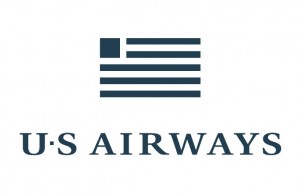 Top Class Action Lawsuits
Top Class Action Lawsuits
Fans of Sunday Night Football are making an end run at the NFL and DirecTV, having filed an antitrust class action lawsuit, over the bundling of games in the NFL Sunday Ticket package. Specifically, the lawsuit claims that Sunday Ticket subscribers should not be forced to pay several hundred dollars for the NFL’s entire spectrum of out-of-market games just so they can follow one team or see an individual game.
Filed in California by Thomas Abrahamian, the NFL Sunday lawsuit states: “The league and DirecTV offer NFL Sunday Ticket only as all-or-nothing….Purchasers of NFL Sunday Ticket must buy all out-of-market games for all teams even if they are only interested in watching the games of a particular team. Likewise, consumers must buy the complete season of games and may not purchase individual games.”
“A Cleveland Browns fan living in California cannot watch the Browns play, except occasional games on network television, unless he purchases the entire package of League games from NFL Sunday Ticket,” according to the complaint. The lawsuit is Case 2:15-cv-04606-BRO-JEM.
Top Settlements
I’ll Drink to That! A settlement has been reached in a consumer fraud class action lawsuit pending against Beck’s Beer. The lawsuit alleges that the beer is produced in St. Louis and brewed with water from Missouri, not imported from Germany, as customers may have been led to believe.
Anheuser-Busch, the makers of Beck’s, ‘tricked’ consumers into thinking Beck’s was a German beer, according to the lawsuit. The beer used to be brewed in Germany by its German owners until 2002 when it was sold to Belgium’s Interbrew, which then merged with Brazil’s AmBev, to become InBev, which in turn acquired Anheuser-Busch. Production of Beck’s moved to St. Louis in 2012, according to the lawsuit.
According to the Beck’s settlement terms, eligible class members are entitled to a refund of up to $50. Settlement class members include customers who purchased Beck’s beer, including Beck’s Dark and Beck’s Light, since May 2011. The settlement has yet to receive final approval but if approved, class members can fill out an online form to claim a refund. Beck’s drinkers can get 10 cents back for every individual bottle purchased; 50 cents for a six-pack or $1.75 per 20-pack.
Refunds will be capped at $50 for claims backed by a valid proof of purchase. Consumers who didn’t keep receipts are entitled to no more than $12. Full terms will be made public upon final approval of the settlement.
Additionally, under the settlement terms, Anheuser-Busch agreed to make labeling adjustments. A statement on the bottle saying it’s made in the USA will become more visible. The green boxes in which the bottles are packaged will also say the beer is made in the USA. So much for “who reads the packaging anyway?”
Patient Privates Undergo “Review” During Colonoscopy… You can’t make this stuff up! An unidentified patient in Virginia has been awarded $500,000 by a jury hearing his medical malpractice lawsuit which claims his anesthesiologist made defamatory comments while he was under sedation for a colonoscopy. The award includes $200,000 in punitive damages.
The unidentified plaintiff, referred to as DB, had left his smart phone on record so he could ensure he got his doctor’s post-surgical instructions, according to the Washington Post. (What ever happened to the patient consult?) However, during the procedure his trousers were placed under him, (Why?) which resulted in the inadvertent recording, court papers indicate.
When DB listened to the recording on his way home from the surgery, he discovered Dr. Tiffany Ingham mocking and disparaging him. Among the comments was a referral to a rash on the plaintiff’s penis, which Ingham incorrectly suggested indicated syphilis and tuberculosis. Nice.
The jury awarded $50,000 in compensatory damages for defamation for the doctor’s remarks about each of these diseases, and another $200,000 for overall medical malpractice. Ingham also allegedly said she was going to note in the man’s chart that he had hemorrhoids, which he didn’t.
DB also sued a gastroenterologist, Soloman Shah, who, while present for the procedure, did not directly participate in most of the commentary by Ingham. Smart…That portion of the case was dismissed.
And it’s off to the rodeo!
That’s a wrap folks…See you at the Bar!



